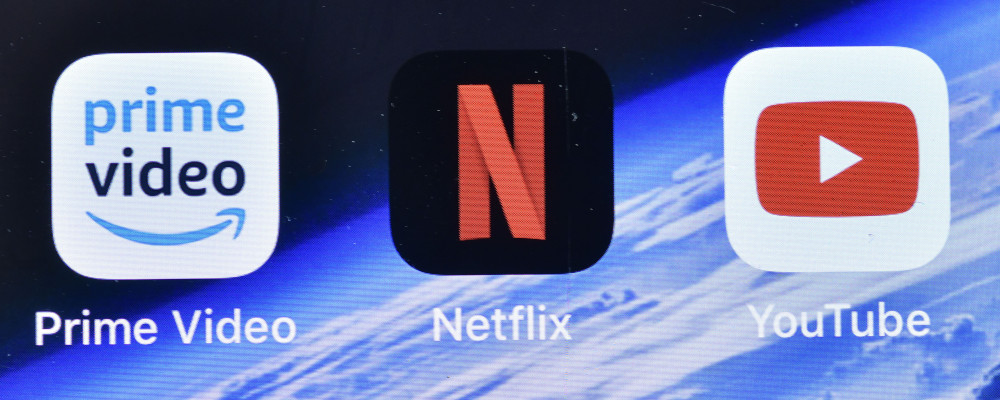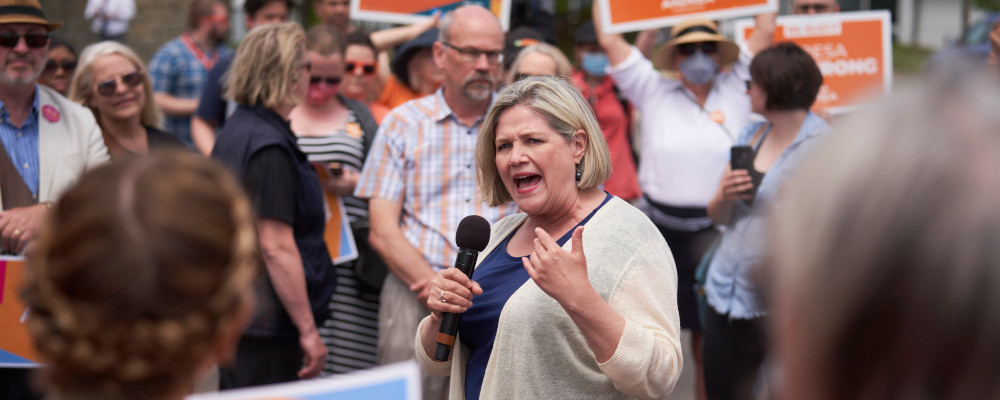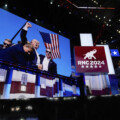Canadian YouTuber J.J. McCullough appeared at Heritage Committee on Wednesday to give his thoughts on Bill C-11, the government’s online streaming legislation. Below are McCullough’s opening statements, describing how this legislation would affect him and other Canadian content creators. To read about the committee hearing, visit The Hub’s news story.
Hello friends, my name is J.J. McCullough and I am a professional YouTuber from New Westminster, BC. Today I hope to teach the committee about Canada’s vast YouTuber community, and why so many of us fear Bill C-11—a bill we did not ask for, do not need, and threatens the success we’ve already achieved.
My channel’s subject matter is mostly cultural analysis, with a focus on Canadian identity. My video topics have ranged from a biography of Wilfrid Laurier to the history of potato chips to why different political parties use different colours. My most popular video is about a Dairy Queen in my community, which has been viewed over 8 million times.
Professional YouTubers like me earn a living from in-video advertisements, with ad revenue generally correlating with the popularity of our videos. A YouTuber’s subscriber count can offer a very rough estimate of their channel’s potential audience size. My channel recently passed 750 thousand subscribers. In total, my videos have been viewed 230 million times.
Now, those numbers might sound impressive, but I’m actually one of this country’s mid-level YouTubers at best.
According to Socialblade.com, I’m merely the 414th most popular Canadian YouTuber. Indeed, according to Social Blade, there are over a HUNDRED Canadian YouTubers with over 3.5 MILLION subscribers and over a BILLION video views.
But popularity at this level isn’t necessary for success. My friend Joe Lee is a professional Canadian YouTuber who makes videos about life in Vancouver, and was recently able to parlay the popularity of his channel into his own clothing line. He has just 156,000 subscribers and 12 million views, making him the 945th most popular Canadian YouTuber.
This should hopefully offer a sense of the size of the YouTuber community as a faction of the Canadian cultural economy. The tremendous success and even worldwide fame of many Canadian YouTubers in the absence of government regulation should invite questions about the necessity of Bill C-11. An unregulated YouTube has been a 17-year experiment—and the result has been an explosion of popular Canadian content, produced by Canadians of every imaginable demographic.
Now, much of the debate around Bill C-11 has centered on so-called “user-generated content,” which is often implied to mean frivolous social media posts. But Section 4.2 states that government IS interested in regulating content that “generates revenues,” which describes the sort of videos professional YouTubers create.
Regardless, it’s important to understand that it’s simply impossible to regulate a platform like YouTube without also regulating creator content. It’s like promising not to regulate books while regulating what can be sold in bookstores.
Hence, Section 7 of this bill states that online platforms must “clearly promote and recommend Canadian programming.”
But what IS Canadian programming?
We know from the precedent of television that merely having a work produced by a Canadian is not good enough for the CRTC—the nationality of basically everyone involved, from editors to musicians to visual effects artists must be factored in too. A detailed budget is expected, and the project’s “theme and subject matter” must be explained. The CRTC website features countless forms TV producers must fill out to get their work certified as officially “Canadian,” and thus worthy of promotion on Canada’s heavily regulated airwaves.
Most Canadian YouTubers shudder at the thought that this could soon be our fate as well. Given the broad powers of the CRTC, which Bill C-11 expands to include digital platforms, the Canadian YouTuber community is right to worry that the continued success of their channels could soon be dependent on their ability to make content that’s “Canadian enough” to obtain government endorsement.
Even more ominously, section 9 of this bill says the CRTC can dictate “the proportion of programs to be broadcast that shall be devoted to specific GENRES” on digital platforms. Given YouTubers make videos of every genre imaginable, from fitness to architecture to political commentary, it is frankly terrifying to imagine that government may soon have a hand in determining which genres of videos are more worthy of promotion than others.
In summary, anyone proud of the tremendous success of Canadians on Youtube should be deeply concerned about the damage Bill C-11 could do to their livelihoods. I also worry that the dreams of the next generation of Canadian YouTubers will become less achievable, once they’re forced to navigate intimidating new regulatory hurdles my generation did not.
But most of all, I fear the damage that will be done to Canada’s legacy as a global leader of cultural entrepreneurship once our online creators are forced to make narrowly nationalistic content under duress, in order to win the favor of a government in denial of what we’ve accomplished on our own.
Thank you.
Recommended for You

RCMP spending to protect MPs may have risen 112% since 2018, as Canadian politicians face greater rise in threats

Peter Menzies: The mainstream media should love Doug Ford, now that he’s subsidizing them

Geoff Russ: A future Conservative government must fight the culture war, not stand idly by

Marc Edge: A media subscription voucher system could help revive the news industry—and restore the public’s trust








